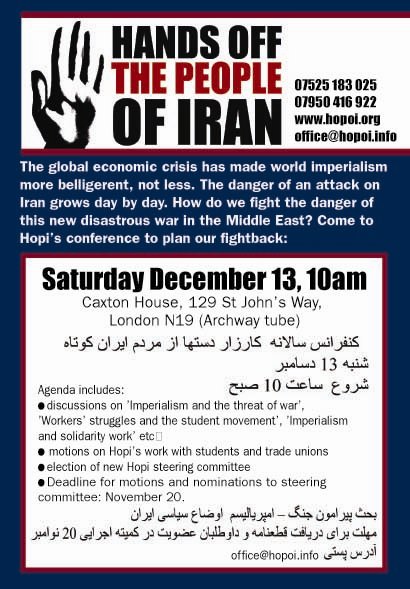Our comrade Solomon Anker reports from Tel Aviv, Israel on the escalation of the conflict in Gaza and the response of the Israeli left and peace movements as well as Arab organisations.
The situation in Israel and Palestine has made everyone become more nationalist. The right-wing Jewish parties in Israel are gaining more support and the Arabic citizens of Israel are extremely angry, and they relate strongly to the suffering of the people in Gaza.
Within the Jewish community the majority support the Army, and the establishment Left (Labour Party) is part of the Government who is in charge of the massacres during the war. Ehud Barak, the Defence Minister is from the Labour Party. Within the Labour rank-and-file there are those who are unhappy with the Government but not even one member is opposing the action in Gaza. The Social Democratic Party (Meretz) and Peace Now, who are anti-occupation, not in the government and whom have a very left-wing rank and file are silent. They tend to only demonstrate against the settlers and the far-right and never challenge the state.
The only opposition in the Jewish community has come from members of the Chadash Party (Communist) and Anarchists Against the Wall. In Tel-Aviv a very lively demonstration took place with 300 people with 5 getting arrested.
The main opposition within Israel’s borders has come from the 1.2 million Arab citizens of Israel. However, these demonstrations have not had a left-wing tone. The demonstrations have been called to protest against what is going on in Gaza, but the mood of the protestors and chants at the demonstrations have been mostly right-wing and are extremely nationalist. In the city of Haifa, where the Communist Party is strong, 300 people a day are demonstrating, mainly shouting slogans saying “Palestine is Arabic” and other slogans relating to “re-conquering” the country. In the smaller Israeli-Arab villages where the Balad Party (Arab Nationalist) and the Islamic Movement are popular the slogans have been even more aggressive, including “We Will Defeat the Jews” and “Death to the Jews.” Slogans saying “End the Occupation” and” Stop the Violence in Gaza” are heard, but in general, these are less popular than the more “militant” calls.
All in all, the mood of the country is nationalist, and even liberal voices are almost dead, with people just tending to stick by their ethnic tribe and having mistrust and fear of the other. Racial fighting between young Jews and Arabs (all working-class) broke out a few months ago in the northern town of Akko. Predictions are that a third Intafada will lead to more racial tension and the chance of working-class solidarity is completely dead and the chance of a race war is far more likely.








